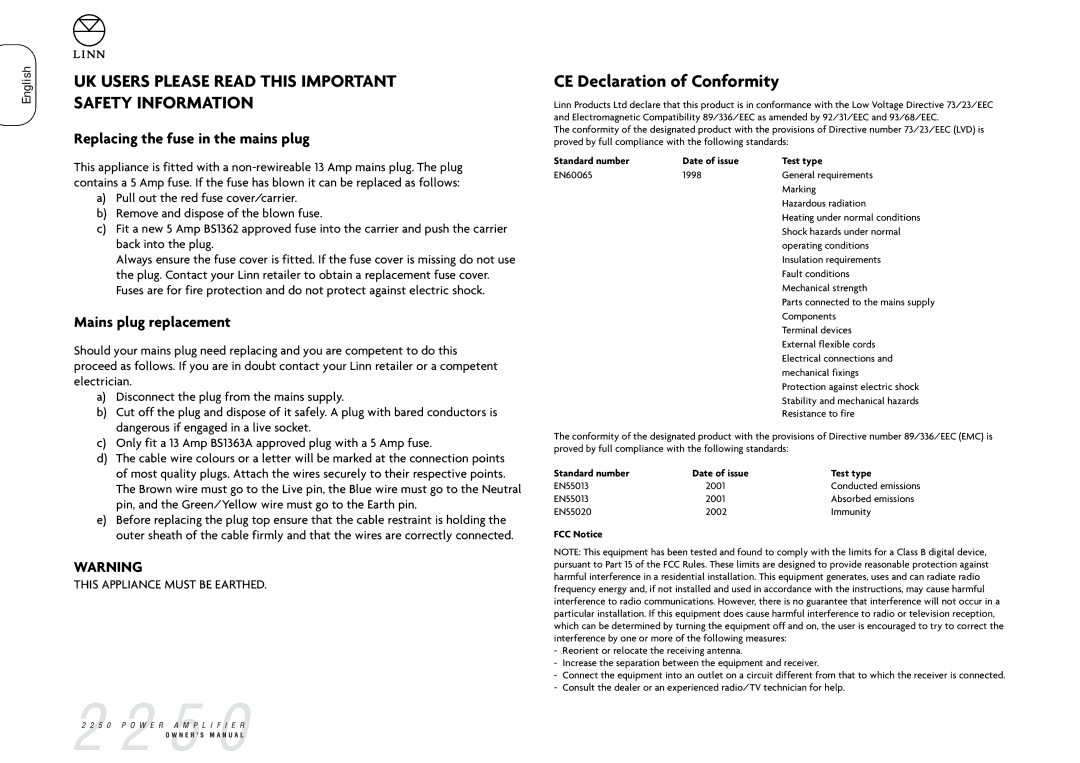2250 specifications
The Linn 2250 is a powerful and sophisticated power amplifier designed for audiophiles who seek an unparalleled listening experience. Developed by Linn Products, a company known for its commitment to high-quality audio, the 2250 is engineered to deliver exceptional performance across a wide range of musical genres.One of the standout features of the Linn 2250 is its robust power output. With a rated output of 2 x 100 watts into 8 ohms, the amplifier can easily drive a variety of speakers, producing a dynamic and engaging sound. This level of power ensures that even the most demanding music passages are handled with ease, providing listeners with clarity and precision.
The Linn 2250 employs advanced Class D technology, which offers high efficiency, reduced heat generation, and compact size without compromising audio quality. This innovative design allows the amplifier to maintain linearity across its entire frequency range, ensuring that audio playback is true to the original recording. Furthermore, the Class D topology contributes to a more power-efficient operation, which is a significant advantage for environmentally conscious consumers.
Another key characteristic of the Linn 2250 is its low distortion levels. The amplification circuit is meticulously designed to prevent unwanted artifacts, allowing for a more transparent sound. This attention to detail ensures that listeners can appreciate the subtle nuances in their music, from the delicate timbre of a solo instrument to the expansive soundstage of a full orchestra.
Connectivity options are also thoughtfully integrated into the Linn 2250. The amplifier features a range of inputs, including balanced XLR and single-ended RCA connections, allowing for seamless integration with various audio sources. This versatility ensures that users can easily incorporate the 2250 into their existing audio systems without the need for additional converters or adaptors.
The build quality of the Linn 2250 is another hallmark of its design. Constructed with high-quality components and a rugged chassis, it is built to withstand the test of time, both in terms of durability and sound performance. The amplifier is also available in multiple finishes, allowing users to choose an aesthetic that complements their home audio setup.
In summary, the Linn 2250 is a remarkable power amplifier that combines advanced technology, powerful output, and superior build quality. With its Class D design, low distortion, and flexible connectivity, it stands out as an excellent choice for anyone looking to elevate their audio experience. Whether for casual listening or critical playback, the Linn 2250 is a worthy addition to any high-fidelity system.

